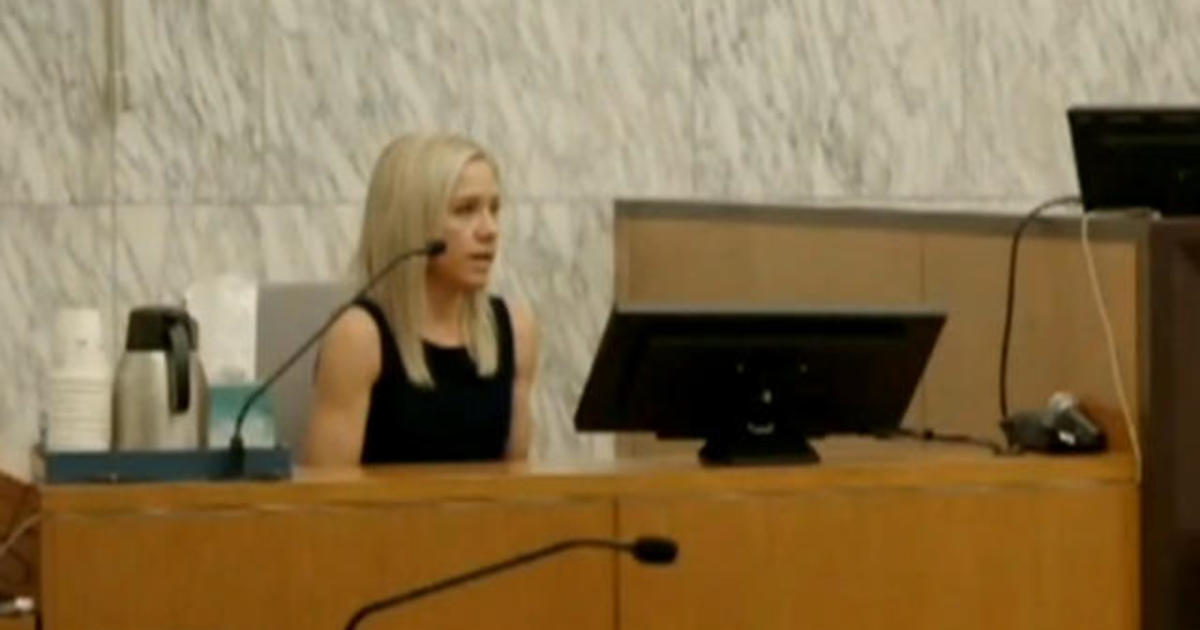to the state of Texas.”
Legal arguments
The lawsuit is centered around the question of whether Texas’ abortion laws provide adequate exceptions for cases where the life or health of the mother is at risk. The plaintiffs argue that the laws are too restrictive and do not allow for necessary medical procedures to be performed in life-threatening situations.
The state, on the other hand, argues that the plaintiffs do not have standing to sue and that any changes to the abortion laws should be made by the Legislature, not the court. State Attorney General Ken Paxton’s office has also questioned whether the alleged injuries suffered by the women can be directly attributed to the defendants.
The outcome of this lawsuit could have significant implications for the future of abortion rights in Texas and potentially across the country. If the court grants the preliminary injunction, it could provide a temporary reprieve for women seeking lifesaving procedures. However, if the court dismisses the case, it could further solidify the state’s strict abortion laws.
Public opinion
The issue of abortion has long been a contentious one in Texas and across the United States. Proponents of abortion rights argue that women should have the right to make decisions about their own bodies and that restrictive laws like those in Texas put women’s health and lives at risk.
Opponents of abortion, on the other hand, believe that the rights of the unborn child should be protected and that abortion is morally wrong. They argue that the state has a legitimate interest in protecting the lives of unborn children and that restrictions on abortion are necessary to achieve that goal.
Public opinion on abortion remains deeply divided, with polls showing that Americans are roughly split on the issue. However, recent polling has shown that a majority of Americans support the right to abortion in at least some circumstances, such as cases where the life or health of the mother is at risk.
Next steps
The court is expected to hear additional testimony and arguments in the coming days before making a decision on the preliminary injunction. Regardless of the outcome, it is likely that this case will be appealed, and the ultimate fate of Texas’ abortion laws may ultimately be decided by the Supreme Court.
In the meantime, women in Texas continue to face significant challenges in accessing abortion care, particularly in cases where their health or lives are at risk. The outcome of this lawsuit could have far-reaching implications for their ability to receive the necessary medical care they need.
As the legal battle over abortion rights continues to unfold, it remains a deeply divisive issue that will likely continue to shape the political landscape for years to come.Women Testify in Lawsuit Over Texas Abortion Bans
Austin, Texas—A group of women who are suing Texas for clarity about exceptions to the state’s strict abortion laws gave emotional testimony on Wednesday about the life-threatening risks to their health they endured when they were denied care during their failed pregnancies.
The lawsuit, brought by the Center for Reproductive Rights, is believed to be the first to be brought by women who were denied abortions after the Supreme Court overturned Roe v. Wade last year. The women are not trying to overturn the state’s abortion ban but are seeking a preliminary injunction on the state’s abortion laws to allow lifesaving procedures.
State Attorney General Ken Paxton’s office, which is defending the ban, argues that the women lack the standing to sue, asserting in its motion to dismiss the lawsuit that “none of the patients’ alleged injuries are traceable to defendants.” The state’s lawyers asked the witnesses on Wednesday if Paxton had personally told them they could not have an abortion.
The court is also hearing the state’s motion to dismiss the case. In opening arguments, the state argued that the plaintiffs, a total of 15, are pursuing the case merely because they are unhappy with the state’s abortion laws, and the remedy for that would rest with the Legislature, not the court.
Four women who said they were denied abortions and a Houston OB-GYN representing her patients are testifying over two days.
Samantha Casiano, who was forced to carry a pregnancy to term even though her baby suffered from a condition doctors told her was 100% fatal, testified that her doctor told her she did not have any options beyond continuing her pregnancy because of Texas’ abortion laws.
“I felt like I was abandoned,” she said. “I felt like I didn’t know how to deal with the situation.”
Casiano, who has four children, had to carry the baby to term. Casiano’s baby daughter died four hours after birth. In describing how she couldn’t go to work because everyone knew she was pregnant and couldn’t bear the questions about her baby, Casiano became so emotional that she threw up in the courtroom. The court recessed immediately afterward.
Texas has some of the strictest abortion laws in the country. In 2021, Texas Governor Greg Abbott signed into law SB8, which bans abortions after six weeks of pregnancy. A “trigger ban” also went into effect, making it a felony for doctors in the state to perform an abortion unless the life of the patient is in danger.
Three women and one doctor testified on Wednesday morning about the medical complications they faced in their pregnancies before Casiano’s testimony.
Casiano said she looked into leaving the state for an abortion, as others had, but she worried about the cost and feared she and her husband would “get in trouble.”
“I have children, I can’t go to jail,” she said she was thinking. ”I can’t get this fine, how would I pay for that, I can’t lose my job. I felt like I had no options.”
All the women testifying emphasized that they had wanted their pregnancies and described the devastation they felt upon learning their pregnancies were not viable.
Amanda Zurawski, who attended President Biden’s State of the Union address this year as a guest of First Lady Jill Biden, testified that she developed sepsis after her water broke but did not go into labor. She said she suffered from a number of medical complications and knew she would miscarry, but doctors told her they could not induce labor because the fetus still had a heartbeat.
Zurawski eventually miscarried three days later. As a result of two bouts of sepsis, she said one of her fallopian tubes has closed permanently, and she has had to undergo several procedures to reconstruct her uterus. She said her doctor told her that the only way she could get pregnant again was through IVF. Since then, Zurawski has undergone three egg retrievals, but she and her husband still have concerns about a future pregnancy.
Ashley Brandt, another plaintiff, testified that she was excited to learn she was carrying twins. But at her 12-week ultrasound, she discovered that one of the twins had developed a fatal condition that could trigger a miscarriage of the other twin. She said her doctor told her that if she terminated that one twin, it would save the life of the other. But the procedure was categorized as an abortion under Texas laws.
Brandt and her husband eventually flew to Colorado for the procedure. They returned to Houston the next day, but soon after their arrival, Brandt experienced bleeding and could not contact the doctor in Colorado. She testified that she feared going to the emergency room since she had had an abortion.
“I didn’t want anyone to get in trouble, but I didn’t want to get in trouble,” Brandt said. “It seems silly now, but that’s what was holding me back from going.”
Brandt ultimately did go to the emergency room and testified that she initially hesitated to tell the doctors about the procedure she had undergone. She divulged her abortion and was treated, eventually delivering a healthy baby girl. But after the harrowing pregnancy, she said her husband underwent a vasectomy because they worried about undergoing a similar ordeal again.
“I don’t feel safe to have children in Texas anymore,” she said through tears. “I knew it was very clear my health didn’t matter, but my daughter’s health didn’t really matter [either].”
The court proceedings continue, with more testimonies expected in the coming days.
1) What are the arguments made by the plaintiffs regarding the adequacy of Texas’ abortion laws in providing exceptions for cases where the life or health of the mother is at risk?
Legal arguments
The lawsuit is centered around the question of whether the state of Texas’ abortion laws provide adequate exceptions for cases where the life or health of the mother is at risk. The plaintiffs argue that the laws are too restrictive and do not allow for necessary medical procedures to be performed in life-threatening situations.
The state, on the other hand, argues that the plaintiffs do not have standing to sue and that any changes to the abortion laws should be made by the Legislature, not the court. The state’s Attorney General’s office has also questioned whether the alleged injuries suffered by the women can be directly attributed to the defendants.
The outcome of this lawsuit could have significant implications for the future of abortion rights in Texas and potentially across the country. If the court grants the preliminary injunction, it could provide a temporary reprieve for women seeking lifesaving procedures. However, if the court dismisses the case, it could further solidify the state’s strict abortion laws.
Public opinion
The issue of abortion has long been a contentious one in Texas and across the United States. Proponents of abortion rights argue that women should have the right to make decisions about their own bodies and that restrictive laws like those in Texas put women’s health and lives at risk.
Opponents of abortion, on the other hand, believe that the rights of the unborn child should be protected and that abortion is morally wrong. They argue that the state has a legitimate interest in protecting the lives of unborn children and that restrictions on abortion are necessary to achieve that goal.
Public opinion on abortion remains deeply divided, with polls showing that Americans are roughly split on the issue. However, recent polling has shown that a majority of Americans support the right to abortion in at least some circumstances, such as cases where the life or health of the mother is at risk.
Next steps
The court is expected to hear additional testimony and arguments in the coming days before making a decision on the preliminary injunction. Regardless of the outcome, it is likely that this case will be appealed, and the ultimate fate of Texas’ abortion laws may ultimately be decided by the Supreme Court.
In the meantime, women in Texas continue to face significant challenges in accessing abortion care, particularly in cases where their health or lives are at risk. The outcome of this lawsuit could have far-reaching implications for their ability to receive the necessary medical care they need.
As the legal battle over abortion rights continues to unfold, it remains a deeply divisive issue that will likely continue to shape the political landscape for years to come.



This article sheds light on the significance of women’s testimonies in the ongoing lawsuit surrounding Texas abortion bans. Their stories highlight the need for clarity regarding reproductive rights and access to lifesaving procedures. It is crucial to listen to these voices as we strive towards healthcare equity and the protection of women’s rights.